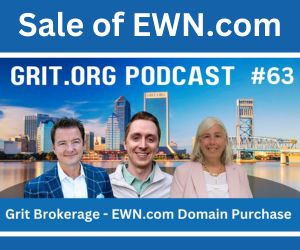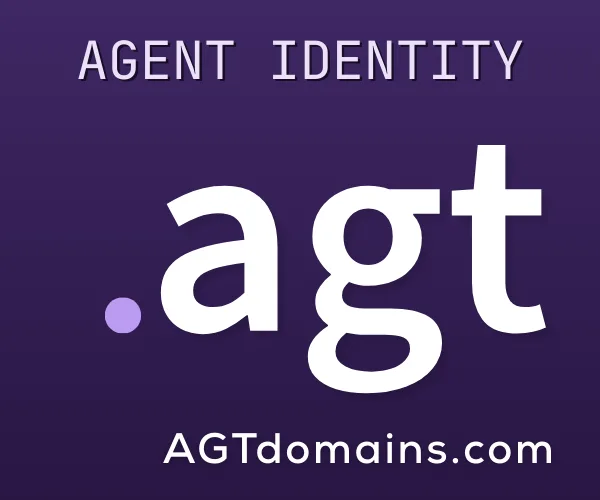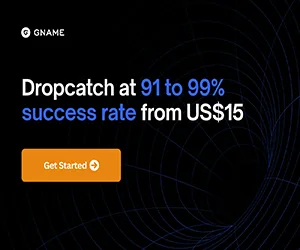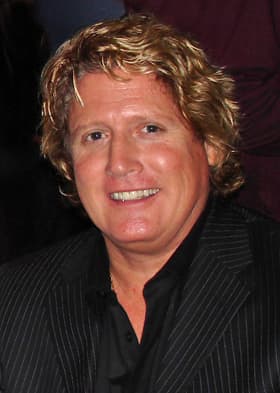“The new gTLDs are here, and I have resigned myself to them while seeing a silver-lining, which I believe is going to be very helpful to our industry."
I feel there is no way around the fact that when you produce a lot of something, it devalues it. For the new gTLDs to produce a similar phenomenon as .com, ICANN would have to allow for every word to become an extension, and further, each of those extensions would have to be developed and advertised to the tune of trillions of dollars. Most people, when they hear or see the .com extension, understand that its definition means “on the internet”. That is truly revolutionary and linguistic in its global banding and marketing. Any method that tries to reteach the masses that .com is something else, and a new (dot)something is better, is just not going to work and will be very confusing. The money, development and infrastructure of that logic, is just not there, nor it will be. For the new nTLDs to succeed, there needs to be greater understanding that there is a hierarchy in the way people find each other. In terms of domain names, .com is the gold standard and global. The other extensions DO have a place in smaller circles. Those circles or niches have a lot more control over their believers in the name.game. Some of the new extensions will be successful. But until it is understood that a niche domain name can then elevate to a greater extension, there will be confusion. As an example; Whisky.de worked very well in Germany and parts of Europe. As the company grew, it wanted greater reach for its business and acquired Whisky.com. They still use both extensions. It works, and there is simple clarity. The fact that ICANN is allowing for thousands of new extensions makes them important. How valuable, is up to the public. They may not always propagate across software, email or browsers, but the fact anyone can type golf.club into a URL and reach a location; that is fantastic. Sully: Back in 2010 I asked you the follow, and this was your answer. What is your reaction to that today?Sully 2010: What is your vision of the internet and domaining industry in the next 5 – 10 years? What will it look like in 10 years from now?
MAC 2010 – Well, I lose in either way I express this. In ten years the world will probably look nothing like is does now. These are historical times. The upside is that everyone will be trying to survive using the most basic and effective means available to them. The internet will be much more like a virtual world with communities and niches that benefit those of like-mindedness. There will also be consolidation amongst those that moved early in the game foreseeing those social impulses that will emerge from people’s needs and empowerment. Domaining and the development therein is what will help empower many people and businesses alike.
Michael: The world is far different than 2010 and the next year will be even crazier. When I wrote; “There will also be consolidation amongst those that moved early in the game foreseeing those social impulses that will emerge from people’s needs and empowerment.” You only have to look at where Google, Apple, Amazon, Microsoft and Facebook were 10 years ago and see that is now a reality. When I wrote; “The upside is that everyone will be trying to survive using the most basic and effective means available to them.” Many who were thriving in the early 2000s are either dissolved, acquired or waging an attractional war to survive. Many more people are living week to week. The caveat to my statement is this; The world has changed a great deal. Back in 2008 at NYC TRAFFIC, I spoke about the coming storm and that a great domain was your safe harbor. America has added 10 trillion to its debt since then, more then all debt combined since its creation. Since 2012, America has more debt than its Gross Domestic Product. https://fred.stlouisfed.org/series/GFDEGDQ188S That is one hell of a problem. The larger corporations may find that their underbelly is exposed to a collapse of consumer confidence. They need a stable consumer base to thrive. That may be an opportunity for those that need less to succeed. I see the potential collapse of many country/state economies, a distrust among its citizens, and a sense of anarchy. If “all hell breaks loose” most people will be relying more on the internet than ever before. The ARPnet (the internet) was built to withstand nuclear war. It has a way of rerouting around a problem area to get information to its destination. That works well for the future. The Internet will survive and thrive and we will eventually immerse more into it for economic survival and our entertainment. Gaming will become a larger part of reality and virtual reality. It could take 5 years or 50 years, but it is going to happen. Sully: Have you attended any domain conferences recently? Why or why not? Michael: OK, I’ll say it. I just don’t have as much passion with the business as I have had in the past. I’ve wanted others to replicate the successes I’ve had. I found over the years that people will do what they want anyways. I don’t need to speak at a conference to achieve that. Articles like this one will live on into the future. I’ve offered several articles, from the past in this article that I could just as well have written today. I find that people want to create their own success and legacy. Success is measured on an individual basis. My happiness is in creating and selling domain names and businesses. When I sold Rate.com last year, I was ecstatic to see the way it was being used and advertised in national campaigns. Rate.com had the impact and reach that I had always felt it did. That is the best way to teach of a domain name’s effectiveness and success. That is reality. At one of the conferences, I had a gentleman come to me as asked me for domain advice. He had paid $40k on the new extensions and his renewals were coming up. He couldn’t afford another $40k. He had not sold one domain name. He was in his 70s and all I could think of is why he was spending so much so late in life. Much of the business is not only investing in quality but also in being able to afford to hold on for many years. I didn’t like having to give him the advice I did. It was painful but was also a lesson-learned on the reality of risk in this business. The conferences these days seem to be more about the new extensions. No doubt, hundreds of millions of dollars are being spent promoting them. I have not bought one. I really don’t have much to offer at these gatherings. Sully: What advice would you give to someone new to the domain industry today? Michael: In 2006, I wrote this.“The domain name market is still a gold mine! Get a second mortgage, sell the family jewelry! If you can find a premium name that relates to your business for less than $100,000, buy it! With an hour’s work a day you could have an imprint on that market in two years. Be the master of your own universe.”
I still believe that today. Building a website that you enjoy with a source of income is still attainable. Create unique content daily, and offer what others can’t. That usually entails putting your time and energy into creating something of value. Your time, thought and energy are valuable and you have an endless amount of it. Convert it into something that is yours, and control your destiny. A .com great name will retain and grow in value-that’s a no-brainer. Build a successful business on top of it. The sky is the limit. I see very little risk in a single word domain like Manicure.com or Nashville.com. I paid $100,000 for Nashville.com back in 2002. It was after the .com bust, but for me it was not a risk. I already had almost a decade of making money from domain names. $100k is a lot of money but many of us would buy a nice car or house for as much or more. Imagine buying a house that pays for itself. That is unique. The new extensions are a market within a market. There is value but also risk. When I started in this business, domain names were free. A lot has changed since then but the fundamental strategies of success are still in place. Learn for those that have made a living from domain names. I can name ten people off the top of my head that are very successful in the domain name arena, and they most likely would give you their advice and attention if you asked for it. Listen to them. Anyone can buy a domain name, that doesn’t make you a successful entrepreneur until you and your family can live off that domain name year after year.



